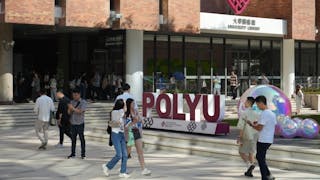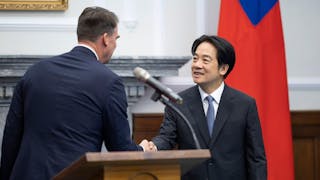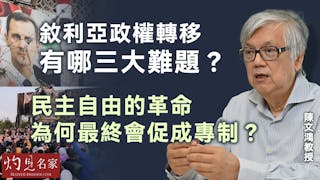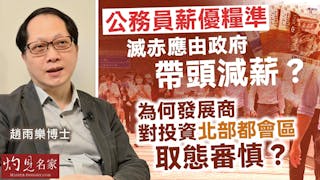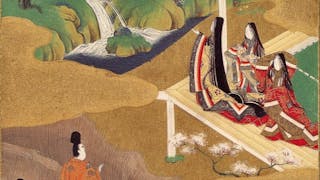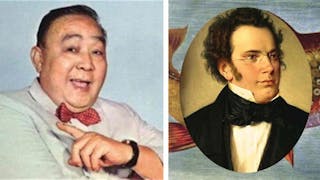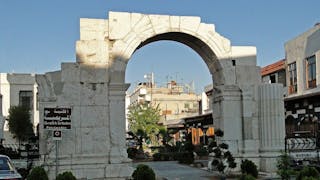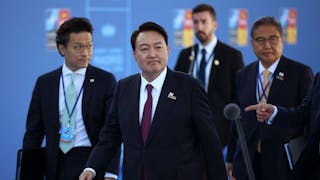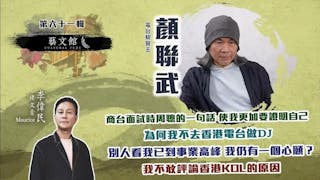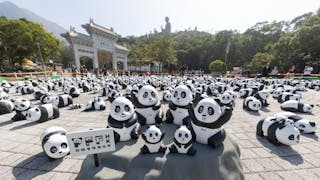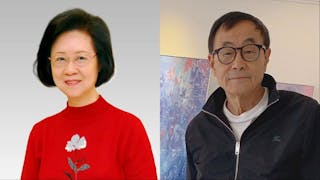聖誕節是普天同慶的大日子。Christmas is a holy day and a joyful festival for the celebration of the birth of Christ. Xmas means the abbreviation of Christ’s mass 彌撒。節日期間,瘋狂購物,饋贈朋友,互相祝福,各適其適,a lot of shopping and many presents are wrapped; many cards are sent to relatives and friends。
聖誕節有獨特的裝飾和氣氛。Christmassy mood means festive mood, typical of Christmas. Christmas carols 聖誕頌歌 are sung in a cheerful way everywhere. Christmas has its own typical festive decorations: tiny and miniature figures hanging on the Christmas tree, such as the manger of Bethlehem, the Christ child, His Virgin Mother, St Joseph, the Magi Kings, the shepherds, the animals and the star. 聖誕樹掛上的檞寄生(mistletoe),金屬絲裝飾品(tinsels, strips of shiny material like metal)以及聖誕紅(poinsettia, a tropical plant with large red leaves),都是聖誕期間(Yuletide season)才隨處見到的事物。
聖誕節有獨特的食品。Christmas food include:pudding(布丁甜糕,a dark fruit cake);eggnog(蛋奶酒,a drink containing eggs and usually alcohol);gingerbread(薑餅,cakes and cookies made with ginger containing the crucial ingredient molasses 糖漿);mincemeat(沒有肉類的百果餡,a traditional English Christmas food containing no meat but just a mixture of raisins, other dried fruits and spices)。
全球節日,林林種種,類別繁多,各自各精釆。Kinds of festivals include celebrations, carnivals and other festivities,例如:Chinese New Year 華人的農曆新年;Cherry Blossom Festival of Japan 日本人的櫻花節;Rio Carnival—four days celebration with music, dance food and drink 巴西嘉年華式的狂歡節;Tomato Fight of Bunol in Spain lasting exactly one hour 西班牙一小時街頭大戰的番茄節。
除了傳統、地方或宗教色彩的節日之外,festivals can also be a series of performances or events,節目也指一連串的表演和藝術活動,例如:Salzburg Festival of Austria and Mozart Festival of Lincoln Center in New York,奧地利沙茲堡和紐約林肯中心的大型著名音樂節。
慶典往往帶有濃厚的傳統色彩,festivals are often traditional。傳統節日延續文化或宗教的傳承,traditional festivals often preserve the old traditions of a cultural heritage,例如:華人農曆正月的新年和八月的中秋節,穆斯林回曆九月的齋月,the Ramadan when Muslims do not eat or drink between sunrise and sunset。
Festivity/Festive/Festal
三者的分別:
Festivity 是名詞,等同於 celebration(慶典),充滿歡樂的 revelry,the happiness and enjoyment that exist when we celebrate。Festivities are the activities to celebrate a special event, e.g. fireworks(燒煙花)and parade(節慶遊行)form part of the festivities. 我們說:Christmas festivities/holiday festivities/seasonal festivities。
Festive 是形容詞,節日的、喜慶的意思,jolly and happy,it means typical of a special celebration;festive 傾向於指適合節日的事物,我們說:a festive occasion/mood/season/holiday, e.g. The Millennium was a very festive occasion. Let’s celebrate it with a big party.
Festal 現在較少用,relating to a festival,直接與節日本身有關,我們說:a festal costume 節日的盛裝,festal celebrations 節日的慶祝活動。
Festival/Celebration/Party/Ball
字義辨別:
Festivals can be large or small, public or private, formal or informal. Festival suggests the celebration of an entire community either periodically at a significant time of the year or on some important occasion. Celebration usually means a large gathering and party a more intimate group, often with persons who are close friends or at least acquainted. A ball is an official or stately occasion, e.g. the President’s inaugural ball.
Celebrate/Celebrated/Celebrity/Celebration
四者意思和用法有分別:
We celebrate(慶祝)means we do something to show that an occasion or event is special. e.g. a 80th birthday or a wedding anniversary. We celebrate an important event, such as anniversary, bicentenary, birthday, coronation, festival, jubilee, wedding. We celebrate success, achievement, victory. 我們大事慶祝一番,Let’s all celebrate,等於說:enjoy oneself/have fun/have a good time/have a party/make merry。
Celebrated 著名的、聞名的、馳名的 = famous. We say a celebrated hero, writer, actress, composer, historian, etc.
Celebrity 名人、名流 = a famous person, especially in entertainment and sport. We say A-list/well-known/instant/overnight /T.V. celebrities.
Celebration(慶典、慶祝的活動), a special event that people organize in order to celebrate something. We say street/special/official/national/National Day/wedding celebrations.
當中,婚姻是人生大事,喜慶的盛事。A wedding celebration is an occasion of great festivity.
There are many useful words related to wedding. The informal expression of to get married is either get hitched or tie the knot(結成夫妻). The formal way to say the same thing is the bride and groom are joined in a matrimony. The greeting(祝賀辭)to the bride and bridegroom is often made by the best man(男儐相/伴郎)in the form of a toast(祝酒): Many years of wedded bliss(白頭偕老,永結同心). The best man is usually the bridegroom’s best or oldest male friend.
本專欄逢周二、五刊登




